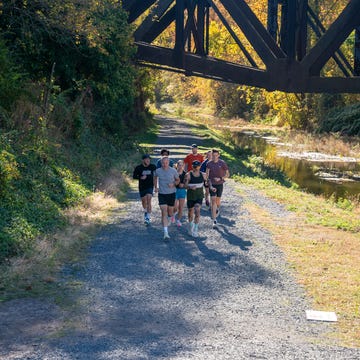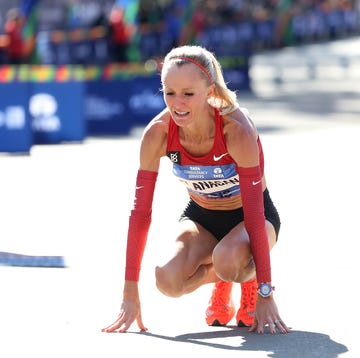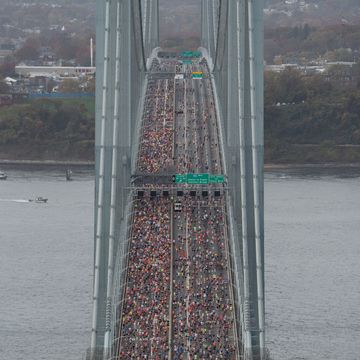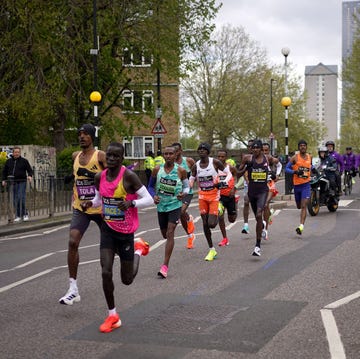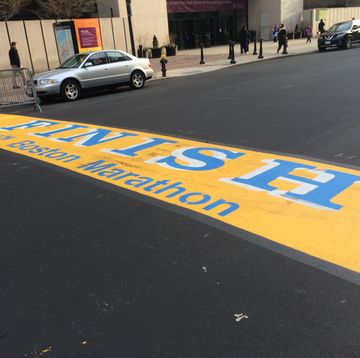Mexican drug cartel violence forced the cancellation of Sunday’s Ultra Caballo Blanco 50-mile race, made famous in 2009 by the book Born to Run, by Chris McDougall.
All About 75 Hardth edition of the event, which takes place in the small town of Urique, about 300 miles from the U.S.-Mexican border. It was started by the Advertisement - Continue Reading Below, who died in 2012, and was nicknamed Caballo Blanco (meaning, White Horse). He lived in the remote area of the Copper Canyons to be close to the Tarahumara (also known as Raramuri) people, the barefoot Native Americans known for their long-distance running prowess, whom the race benefitted by providing vouchers for corn, beans, rice, and flour.
The decision to cancel was made by race organizers on Saturday. Mexican officials reported that a municipal police commander was allegedly kidnapped and two officers were executed near Urique.
Josue Stephens, co-race director with Maria Walton, said in an email to Running Times that he witnessed several men being dragged off to be executed, as well as the mother of one them running after them and crying.
“I saw the police disarmed by the cartel (and) we all heard gunfire and grenades outside of town all day Saturday,” Stephens said in the email.
Last year, about 300 runners finished the race. Francois “Flint” Bourdeau, a four-time finisher of the Ultra Caballo Blanco, from Montreal, Canada, said in a phone interview that most people understand that violence exists in Copper Canyon.
“It’s just never been very apparent, never very concrete or obvious,” he said. “This year was different. It was obvious that there was serious activity and that was very unexpected.”
Stephens said the local government was unhappy with the decision to cancel the race on Saturday, and according to news reports, Daniel Silva, the municipal president, ordered the race to continue.
“In a surreal moment, I ran on stage and grabbed a microphone to announce the race was not legitimate, that things were not safe, that the government was continuing without the [race] organization, knowing of the threat,” Stephens wrote in his email.
On Sunday, the day the race was supposed to be held, many Mexican nationals and some international runners ran, saying it felt unfair to flee when the Raramuri live in these violent conditions every day. Michael Versteeg, a race participant from Prescott, Arizona, who decided to run despite the cancellation, wrote about the experience on his blog.
“[The Raramuri] didn’t care about the politics,” he wrote. “They didn’t care about the corn vouchers. They have survived long before and will survive long after the donations stop coming in.”
Periodized Training Can Help You Hit Your Goals.
“Even hearing this, I would go back in a second,” said Rickey Gates, a San Francisco-based elite ultrarunner who ran Ultra Caballo Blanco in 2014. “Just not with my girlfriend or mom.”
Bourdeau, who is an active member of the Norawas de Raramuri nonprofit organization, which supports the Tarahumara running culture and nutritional needs, is adamant about returning to the area, partially to see the completion of the Caballo Blanco Traditional Trail, another effort for which the organization has raised funds.
“This will be a trail filled with meaning, a traveling path used on a daily basis,” he said. “These things are so much more important than one event.”
Stephens isn’t ready to commit to next year. He wondered whether moving the race to New Mexico or another location in Mexico might be an option. “The canyons are just super dangerous right now,” he said.

